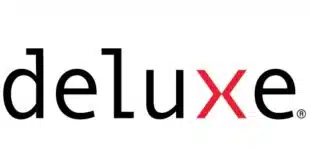Prepaid card services provider Blackhawk Network Holdings Inc. disclosed Wednesday that it plans to sell its struggling Cardpool business.
That news came as Pleasanton, Calif.-based Blackhawk reported a loss of $7.8 million for its third quarter ended Sept. 9, bigger than the $5.1 million loss in 2016’s third quarter. Third-quarter operating revenues increased 16% to $419.3 million from $361.6 million a year earlier, but the company, a leading provider of gift cards sold in grocery stores and other retail locations, lowered its near-term financial outlook in the face of increasing competition in physical stores.

Blackhawk acquired San Francisco-based Cardpool in 2011 for $19 million as an extension of its big gift card business. Through Cardpool kiosks or cashiers at partner stores consumers can sell unused balances on closed-loop gift cards from 150 retailers at a discount. Blackhawk then resells the funds at a markup.
Cardpool contributed 4% of Blackhawk’s total operating revenues of $1.9 billion in 2016, but its business has been declining despite $10 million in investment by Blackhawk since 2011. Sales fell last year by $30 million, in part because of a reduced number of retail kiosks, and that trend has continued this year. Cardpool’s adjusted operating revenues fell by $7 million year-over-year in the third quarter to $10 million. Blackhawk predicts the unit’s adjusted revenues for fiscal 2017 will come in at $65 million, some $20 million under last year’s $85 million, and generate an adjusted net loss of $4 million.
“We indicated earlier in the year that we would explore alternatives, and while we believe there’s a good opportunity in the large secondary gift-card market, we’ve decided this lower-margin business is not a long-term fit for us,” Blackhawk president and chief executive Talbott Roche said during a conference call with analysts, according to a transcript from Thomson Reuters StreetEvents. She later added that “the Cardpool shortfall was caused by continued poor performance of older kiosks” related to what she termed “software challenges.”
There was some good news, however. Blackhawk’s international and incentives business saw strong top-line growth, Roche reported, and U.S. retail transaction volume increased 13% thanks to the addition of Target Corp. as a distribution partner, strong growth in digital channels, and the easing of problems related to EMV chip card implementation at some grocery-store distribution partners. A number of supermarkets that hadn’t yet implemented EMV card acceptance greatly restricted sales of Blackhawk-provided open-loop prepaid cards in 2016 in order to prevent fraud, crimping Blackhawk’s revenues.
Despite that, Blackhawk’s stock fell sharply Thursday morning on the Nasdaq stock exchange, with share prices off about 17% from Wednesday’s $44.20 close.





